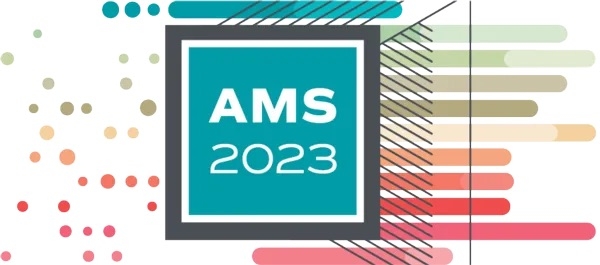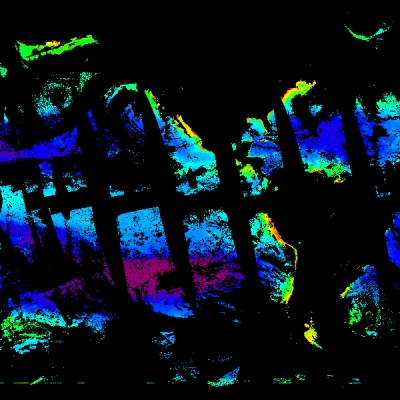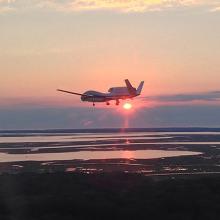A contingent of IMPACT team members is heading to the 103rd American Meteorological Society Annual Meeting in Denver. Below are previews of these upcoming presentations. You will want to get them on your calendar!

Rescuing NASA’s Historical Airborne and Field Data for Open Access and Reuse
Monday, January 9, 2023 @ 1:45 PM
Historical data (collected in the pre-digital era) has the potential to remain valuable if made discoverable, accessible, and reusable. One example is the data from the Global Tropospheric Experiment (GTE) campaigns that took place during 1983–2001. These campaigns collected a rich set of data records that have served as important atmospheric gas baselines for many later airborne research campaigns. This presentation describes various efforts underway to ensure proper care of NASA’s historical airborne and field data. These efforts include locating analog data and information, developing care plans in line with current and future user needs and expectations, determining funding needs for data digitization and transfer, and working with assigned Distributed Active Archive Centers to ensure the data are efficiently and effectively presented to public users.
Monday, January 9, 2023 @ 2:00 PM
NASA’s Airborne Data Management Group (ADMG) works to promote and ensure discoverability and accessibility of the agency’s non-satellite Earth science observations. A key facet of this effort has included developing NASA’s Catalog of Archived Suborbital Earth Science Investigations (CASEI). Leveraging the technical capacity within the Interagency Implementation and Advanced Concepts Team (IMPACT), ADMG has led the development of CASEI to provide a single entry point for users to efficiently search and browse NASA’s airborne and field data archives in support of the open science vision, regardless of which repository is responsible for their stewardship. This presentation will describe the development of the CASEI system, including well-defined data models to drive cloud-based user portal data access, simultaneously provisioned interfaces for inventory database curation and maintenance, and the vetting of key contextual details required to sustain this unique inventory of airborne and field metadata.
Identifying Improvements to Airborne and Field Data Stewardship from Data User and Producer Needs
Monday, January 9, 2023 @ 2:15 PM
In March 2022, a collaborative group consisting of NASA ESDIS, DAACs, and ADMG held a two-day airborne and field data workshop aimed at understanding the unmet needs of both data users and data producers. The planning committee has since sifted through the variety of responses and synthesized the recommendations and concerns into a set of use cases describing data user and data producer needs that are prioritized by importance and the level of effort and cost. The findings from this workshop will be used to guide changes in NASA airborne and field policies and procedures, as well as to ensure that funded activities, such as tool development or cross-data center consistency coordination, focus on the needs of the various communities served. This presentation will report the findings and outcomes of this workshop in an effort to share broadly and assist other organizations in understanding the unique needs of the airborne and field data communities.
Making Better Use of Satellite Data: The Satellite Needs Working Group
Tuesday, January 10, 2023 @ 11:15 AM
The U.S. Group on Earth Observations (USGEO) initiated in 2016 the Satellite Needs Working Group (SNWG) to identify and communicate Earth observation needs of U.S. federal agencies. SNWG processes have resulted in the implementation of numerous services that have impacted operations of not only U.S. agencies but also academic and international institutions. The SNWG Management Office at NASA’s Interagency Implementation and Advanced Concepts Team (IMPACT) manages the implementation of selected solutions and, importantly, NASA’s response to the needs of federal agencies through a Stakeholder Engagement Program. The impact of implemented services and solutions is hampered without efforts to build capacity around the use of the services. The Stakeholder Engagement Program ensures relevant training and outreach to SNWG agencies in collaboration with each solution implementation team.
Deep Learning for Surface Water Feature Detection with PlanetScope Data
Thursday, January 12, 2023 @ 4:00 PM
Surface water detection on Earth using remote sensing has been studied since the early 1970s. Accurate mapping of water bodies is of major importance in monitoring climate change and its impact on our planet. Commercial small satellites have the potential to provide more frequent coverage and higher spatial resolution observations than most traditional government mission satellites. The goal of this research is to leverage commercial small satellite data for surface water detection. We utilize PlanetScope data from Planet Labs, Inc. which has a spatial resolution of approximately 3 meters and near-daily global coverage. A deep learning-based approach for surface water detection is designed and developed as an alternative to remote sensing indexing techniques. The proposed system uses a convolutional neural network based architecture (U-Net), and the model is trained and tested on temporally different data. We will present the model and compare the initial results with traditional water mapping approaches to demonstrate its effectiveness in assessing high resolution mapping of surface water extent.


